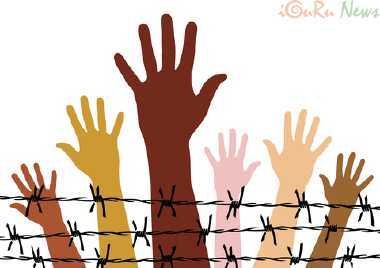Free internet access should be considered a human right, as people who cannot connect to the internet - especially in developing countries - have no real way of influencing the global players that shape their daily lives.

This is the general conclusion, a new study on the internet, carried out and published by Dr. Merten Reglitz, lecturer at the University of Burningham, in the Journal of Applied Philosophy.
According to the study “The Human Right to Free Internet Access"Political leaders' commitments are increasingly being made online, and so the basic freedoms that are taken for granted, such as freedom of expression, freedom of information and freedom of assembly, are being undermined if some citizens have access to internet and others not.
New research reveals that the internet could be an essential means of protecting other basic human rights, such as life, freedom and the prevention of torture.

In his comment Dr. Reglitz states:
“Internet access not a luxury, but on the contrary a moral human right and everyone should have unimpeded access and censorship, access to this global instrument. Should provided free of charge to those who cannot afford it.
Without such an approach, many people do not have a substantial way of influencing and holding supranational legislators and institutions accountable. "These people simply have no say in shaping the rules, which they must obey and which shape their lives."
He added that exercising freedom of speech and acquiring information was now dependent on internet access. Many of today's political debates have taken place online, and much of the policy information is shared online.

Dr.'s research Reglitz gives the Internet unprecedented opportunities to protect basic human rights, such as life, liberty and physical integrity. While acknowledging that the Internet does not guarantee these rights, it cites examples of participation by people who have helped the government and the institutions to take its opinion into account. These examples include:
- The "Arab Spring" and the new ways of global reference for government atrocities.
- The documentation of unjustified police brutality against African-Americans on USA.
- On #MeToo campaign which helped to "prevent" the sexual harassment of women by powerful men.
The study demonstrates a number of important political institutions that are committed to providing universal access to their populations, convinced that this objective is accessible:
- The Indian state of Kerala has declared universal internet access a human right and aims to provide it to 35 millions people until 2019.
- The European Union has launched WiFi4EU initiative to provide “to every public centre of every European village and city, free wireless Internet access by 2020".
- Global access to the internet for developing countries is part of its Objectives UN Sustainable Development Goals (Sustainable Development of the United Nations).
Many people in poorer parts of the world still do not have access to the Internet, but their numbers are decreasing as technology becomes cheaper. However, the expansion of the internet has slowed in recent years, which suggests that universal access will not happen without some deliberate promotion.
Η μελέτη προσθέτει ότι το δικαίωμα του ανθρώπου στην πρόσβαση στο internet είναι παρόμοιο με το παγκόσμιο δικαίωμα στην υγεία. Όμως, πολλά κράτη είναι πάρα πολύ φτωχά για να παρέχουν αυτές τις υπηρεσίες. Αντ ‘αυτού, καλούνται πρώτιστα να παράσχουν βασικές ιατρικές υπηρεσίες και να εργαστούν για την παροχή υψηλότερης ποιότητας supply υγειονομικής περίθαλψης. Τέτοια κράτη θα πρέπει αρχικά να προσφέρουν δημόσιους τόπους με πρόσβαση στο διαδίκτυο και να αναπτύξουν υποδομή πληροφορικής (όπως τηλεφωνία) που θα αυξήσει την πρόσβαση.

We, at SecNews, we co-sign the conclusions of the study. The trend of the internet is to overtake television and print media, at least when it comes to news and political events.
The internet is a faster, more direct, and much larger means of communication than any international television channel. It can directly translate all political messages and events and, moreover, it can be hard to digest. In the coming years it is envisaged to become the main means of communication and information transfer.
Although it has many dark spots, like fake news, rest assured that it will dominate your life in a few years. So we think that yes, it must be characterized as one of the basic human rights. Free and free access must be ensured by all.





